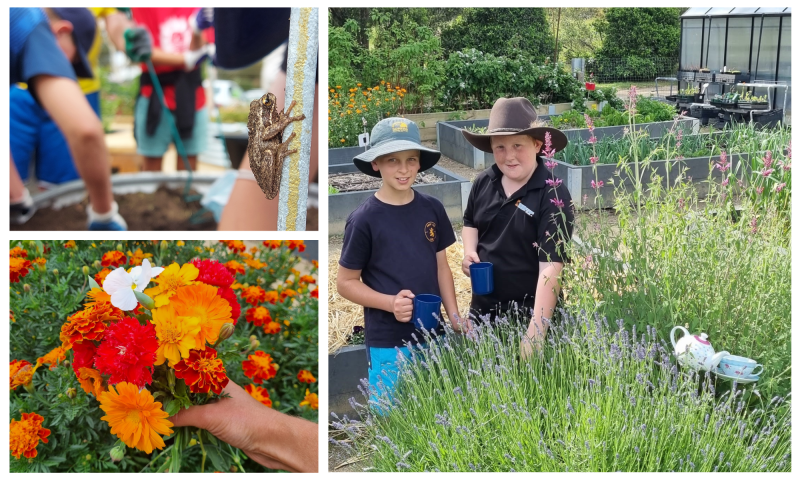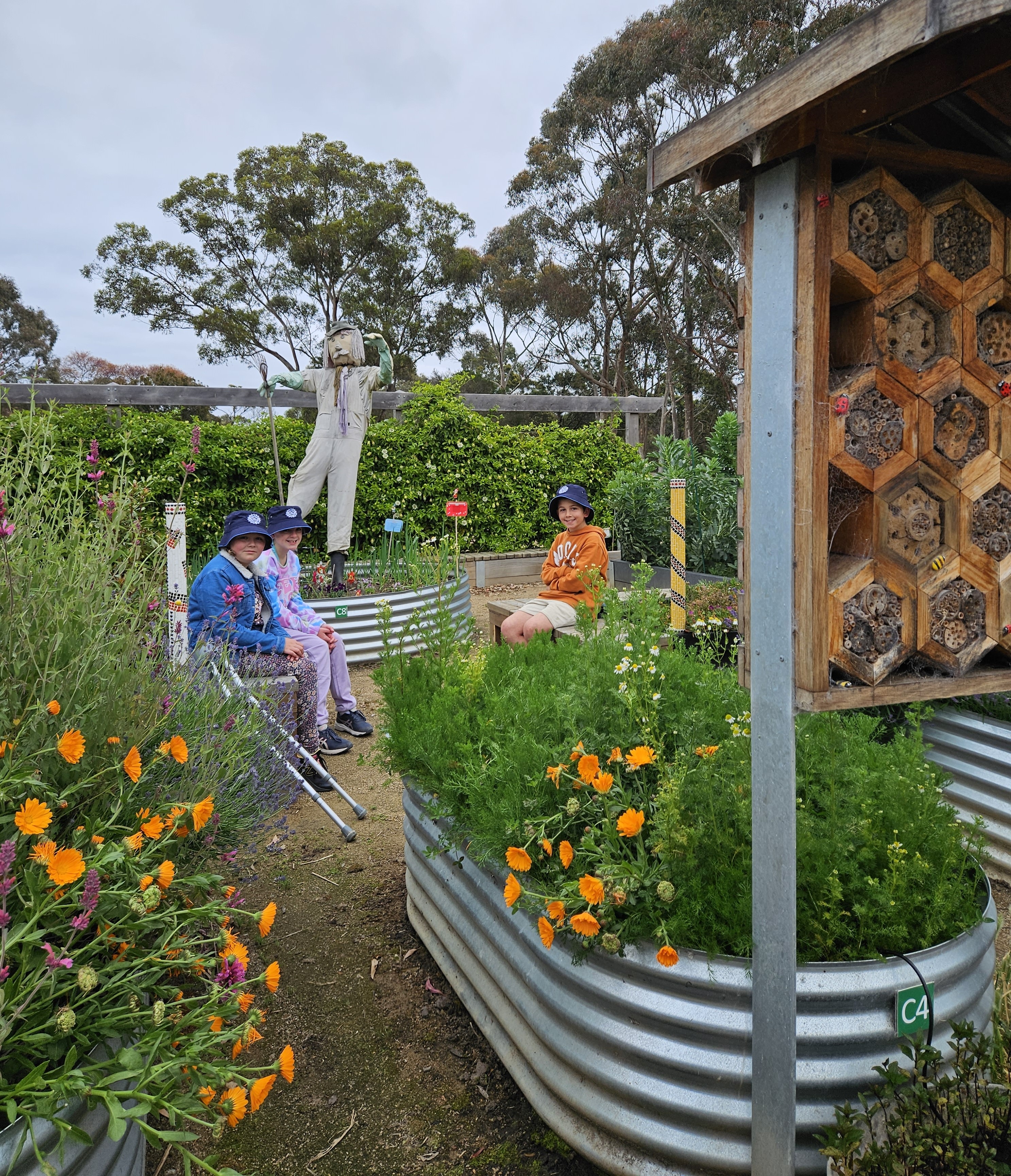Somers School Camp is an outdoor residential school for upper primary students. Adjoining the Coolart Wildlife Reserve and the shores of Westernport Bay in Victoria, the site provides the opportunity to immerse students in the natural environment fully. We focus on building capabilities for thinking and acting in ways that are necessary to create a more sustainable future. By teaching practical gardening skills in our community garden and offering perspective on how ecosystems work, it gives students the capacity to apply this learning back to their everyday lives and start their own journey of sustainable living.
We are a diverse community of learners, with 160 students at a time coming from 15–25 schools in their region. Our community garden provides a learning environment where a sense of belonging and wellbeing is cultivated. As students are in residence for nine days, they don’t see the complete growing cycle of crops in their community garden lesson.
For example a crop such as spring onions that take 10 weeks to mature, might typically see students in the first camp germinating seeds in the glasshouse, the second camp preparing the planting bed by improving soil health, the third camp following on by planting out the seedlings into beds, the fourth camp managing weeds and pests and finally, the fifth camp harvesting the crop and helping with food preparation in the camp kitchen. This means that during a 10-week cycle, 800 students from over 60 schools will have been involved in the various stages of the food crop growth cycle. Through this process, students are made aware of the ‘pay it forward’ concept, emphasising the previous and future efforts of students to nurture the plants to harvest.
This ties back to our sense of community – not only within our nine-day camp, but also as part of the wider camp family. We benefit greatly by being part of the Diggers community and appreciate the support from their education team and a fantastic supply of seeds through the ‘Seed the Future’ program.

Transforming an underutilised grass site with little biodiversity into an insect-friendly ecosystem that supports native pollinators (including a beehive!) was a key goal when designing the garden classroom. To align with our school’s sustainability values, we used recycled and second-hand materials. Garden beds are made from reclaimed soft plastics, and the vertical garden posts, fence and seating timbers are all repurposed wood from the old Somers School Camp Bridge. The potting shed is clad in tin from an old on-site building and the entrance gate is welded from used gardening tools. An integrated pond and vertical garden show how power from the wind turbine and solar panel can irrigate the pots and aerate the pond.
The garden supports many aspects of learning, whether simply providing a restful place for reflection and wellbeing, a place to nurture relationships and connect to nature or targeted learning on food waste, pollination, pest management, biodiversity, seasons and food miles. We aim to inspire future generations through our garden outcomes, while also empowering young people to teach others and take home new actions. With this hands-on experience and acquired knowledge, we hope to create a ‘growing community of community growers’.
Help us deliver our programs
Education is a core role of The Diggers Foundation. Every day, we work with schools and community groups to help them learn how to grow their own food. Through our expertise, seeds and product donations, we support children, families and communities in cultivating fresh, healthy produce.
